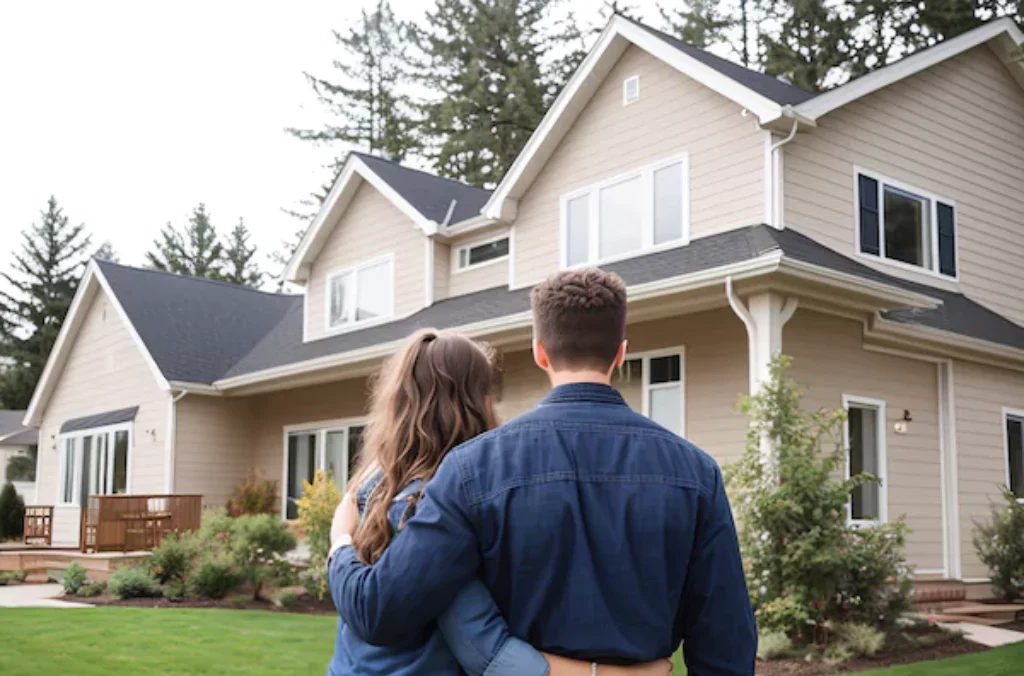Build Or Buy: What First-Time Homeowners Need To Know

As a first-time homeowner, you may find the decision of whether to buy or build a home challenging and confusing. Factors like time, cost, convenience, and customization must be considered.
This article will provide insights into the essential aspects of both options. It’ll guide you through the process of preparing to build a custom home and purchasing an existing property to help you make an informed choice.
But first, it discusses the importance of managing your finances and minimizing debt to ensure a smooth journey toward homeownership.
Minimize Debts
Debts can significantly impact your ability to buy or build a home. While it may be challenging to avoid debts altogether, it is essential to minimize and manage them effectively. A good credit report, which reflects how well you manage your debts, is vital when securing a mortgage or home loan. Lenders are more likely to trust borrowers with a history of repaying loans on time.
If you lack a credit history or have too many unsettled debts, it may be more challenging to obtain home loans. Focus on clearing debts and maintaining a good credit score to increase your eligibility for mortgage options and lower interest rates.

Save For A Down Payment
Saving for a down payment is crucial when planning to buy or build a home. Even if you secure a mortgage that entirely finances the purchase, you will still need cash at the closing table. Start saving early to ensure you have sufficient funds for the down payment and any unexpected costs.
Assess Your Budget
Your budget plays a significant role in determining whether to build or buy a home. Consider the long-term costs beyond the mortgage payment, such as property taxes, homeowners insurance, and maintenance expenses. Ensure you have an emergency fund to cover unexpected repairs or delays.
Building a new home can have unforeseen costs, such as material price fluctuations or construction delays. Conversely, purchasing an existing property may entail remodeling and renovation expenses. Take these factors into account when assessing your budget.
Determine The Type Of Home You Want
Before making a decision, figure out the type of home you envision living in. Review the types of houses available in your desired location, and consider factors like space, cost, and potential additional charges. Depending on your budget and preferences, you may opt for a smaller home with lower maintenance costs or a larger house in a more affordable location.
Weigh Convenience And Customization
When it comes to convenience, buying an existing home may be your best option, especially if you want to be in a particular neighborhood near work or school. However, you may have to incur extra costs for decorating and refurbishing the property to fit your preferences.
On the other hand, building a new home offers the opportunity for customization, allowing you to create your dream home from the ground up. Though it may be less convenient, as it requires purchasing land and hiring an architect, the result is a property tailored to your taste and needs.
Preparing To Build A Custom Home
If you decide to build a custom home, there are several steps to follow. First, research and purchase a suitable piece of land. Consider factors like location, neighborhood amenities, and potential resale value. Next, find a reputable architect and builder who can bring your vision to life. It’s essential to have clear communication with these professionals and establish a realistic timeline for the project.
During the construction process, monitor costs and stay on top of the budget. Be prepared for potential delays due to material shortages or other unforeseen issues. Lastly, ensure all necessary permits and inspections are obtained and completed throughout the building process.
Buying An Existing Home
If you opt to buy an existing home, start by researching the real estate market in your desired area. Work with a reputable real estate agent to find properties that fit your criteria and budget. When viewing homes, take note of any necessary repairs or renovations that may impact the overall cost.
Secure a mortgage pre-approval to strengthen your bargaining position and expedite the buying process. Additionally, consider hiring a professional home inspector to identify any potential issues with the property before closing the deal. This can help you negotiate a lower price or request necessary repairs.
Negotiate the purchase price and terms with the seller, and ensure all legal paperwork is completed accurately. Upon closing, be prepared for additional costs such as closing fees and moving expenses.
Conclusion
Ultimately, the choice between buying and building a new home depends on your personal preferences, budget, and timeline. If convenience and speed are your top priorities, purchasing an existing property may be the best option. However, if customization and the opportunity to create your dream home are more important, building a custom home may be the right path.
Keep in mind the long-term costs associated with both options, such as remodeling, maintenance, and emergency expenses. By carefully considering these factors and planning accordingly, you can make an informed decision that leads to a satisfying and successful homeownership experience.

